Global hunger and undernourishment are not new issues.
Millions of people all over the world suffer from hunger and undernourishment on a daily basis. Caught in the poverty cycle, this is unlikely to change without external assistance.
The 2030 Agenda for Sustainable Development, adopted by all United Nations Member States, aims to achieve zero hunger by 2030 as part of the Sustainable Development Goal (SDG) 2: End hunger, achieve food security and improved nutrition, and promote sustainable agriculture.
However, since adoption of the SDGs in 2015, the number of people who are undernourished has increased from an estimated 784 million people (2015) to 821 million people (2017).
CBM's work for World Food Day
Addressing food insecurity
We are working with communities in developing countries to create their own community gardens.
We are providing community self-help groups (SHGs) with seeds, equipment and training for them to become self-sufficient.
We are also providing communities with chickens, goats, cows and other livestock as both sources of food and income.
Limiting our greenhouse gas emissions
We’re committed to addressing climate change across all aspects of our operations, both internally and externally. Read our climate change position statement here.
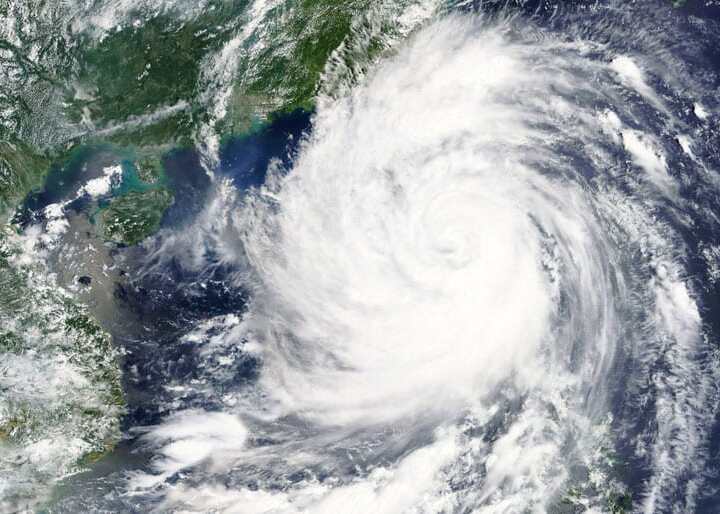
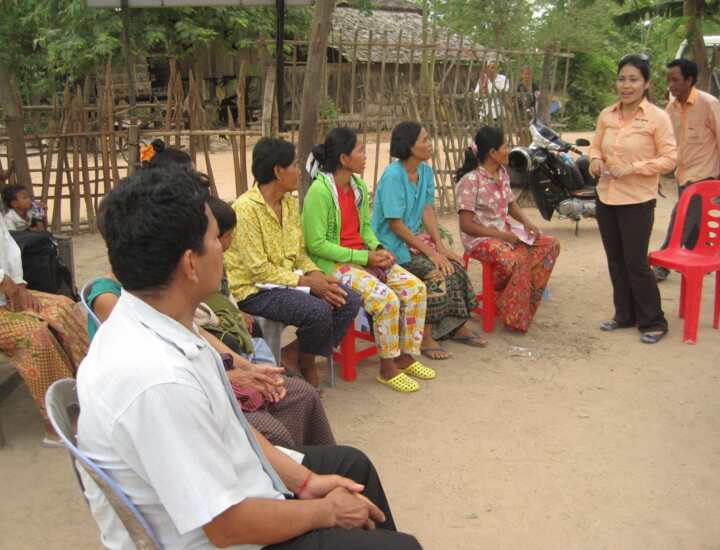
Preparing communities for climate change
Climate change disproportionately impacts people in poverty and those with disabilities. This is due to a number of reasons:
- When climate change impacts food and water accessibility, people with disabilities face barriers in their environment that makes relocation a challenge
- People with disabilities are more likely to be left behind or forgotten during and after disaster events
- During times of disaster, access to medication and specialist care becomes more difficult.
For more information on this please read our Climate Change: Poverty and Disability article.
Addressing drought and food insecurity in Kenya
In Kenya, prolonged droughts have led to a 70% decline in food production, severely affecting local communities – particularly people with disabilities. CBM Australia has helped implement inclusive strategies to combat these challenges.
Our approach focuses on helping make relief efforts accessible to all and recognising that people with disabilities often face additional barriers. By collaborating with local organisations, we help promote worldwide awareness and action to support vulnerable populations in achieving adequate food and nutrition.
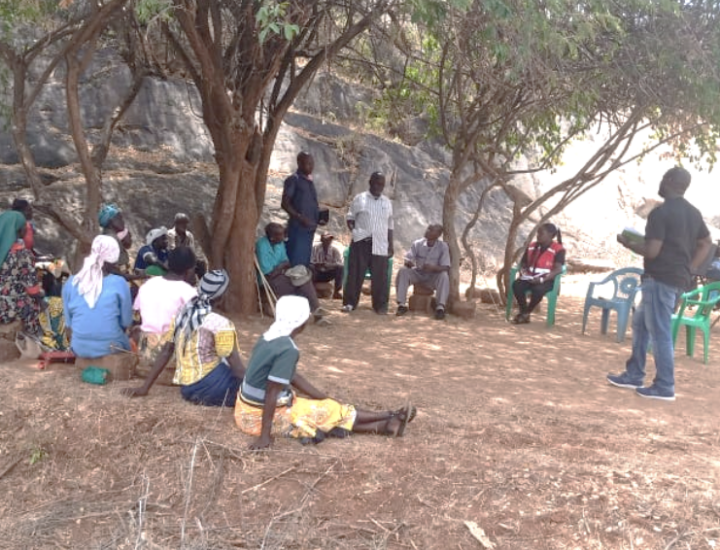
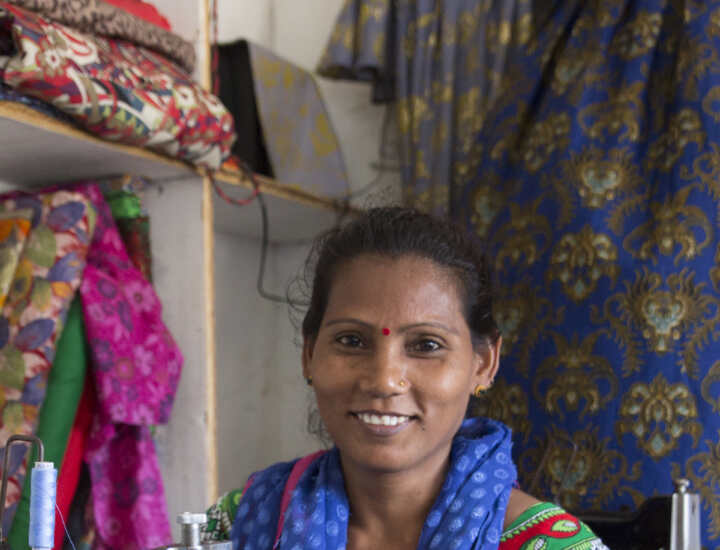
Policy recommendations for inclusive development
In line with the Food and Agriculture Organisation of the United Nations’ goals for sustainable development and the right to foods of adequate nutrition, CBM Australia, in partnership with the Australian Disability and Development Consortium (ADDC), helped put forth policy recommendations emphasising the inclusion of people with disabilities in international development programs.
These recommendations advocate for the transformation of food systems to be more inclusive, ensuring that marginalised groups have access to nutritious food and resources. By urging governments and stakeholders to adopt these policies, CBM aims to help address food insecurity and promote a better future for all.
Building resilience against climate change
Climate change poses significant threats to food and nutrition security, particularly in developing countries. CBM Australia recognises that people with disabilities are disproportionately affected by these challenges.
CBM’s capacity-building initiatives collaborate with local communities to develop adaptive strategies that help enable sustainable food production and access to precious water resources. These efforts are crucial in helping mitigate the impact of repeated weather shocks and economic downturns on vulnerable populations, aiming for a sustainable future where everyone has enough food.
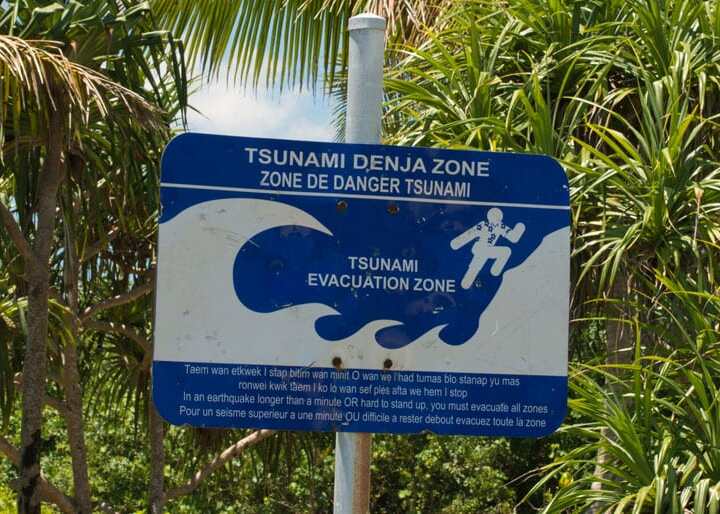

Empowering disability advocates
To foster inclusive agrifood systems transformation, CBM Australia has launched a fellowship program in collaboration with the International Disability Alliance. This initiative trains individuals from the disability movement in Asia to become advisors on inclusion, ensuring that food security and nutrition programs consider the needs of people with disabilities.
By equipping these advocates with the tools to influence policy and practice, CBM strengthens the role of civil society in creating a more inclusive and food-secure world.
The Impact of COVID-19 on food insecurity
The COVID-19 pandemic exacerbated food insecurity, particularly in South-East Asia and the Pacific. Many people with disabilities faced heightened challenges due to disruptions in food supply chains (such as smallholder farmers), loss of livelihoods, and reduced access to essential nutrition services.
CBM worked alongside other partners to implement social protection programs that ensured food access for those most in need. Their efforts reflect the importance of collective action in tackling pressing issues related to world hunger and ensuring that everyone, regardless of ability, has access to safe foods and a better life.
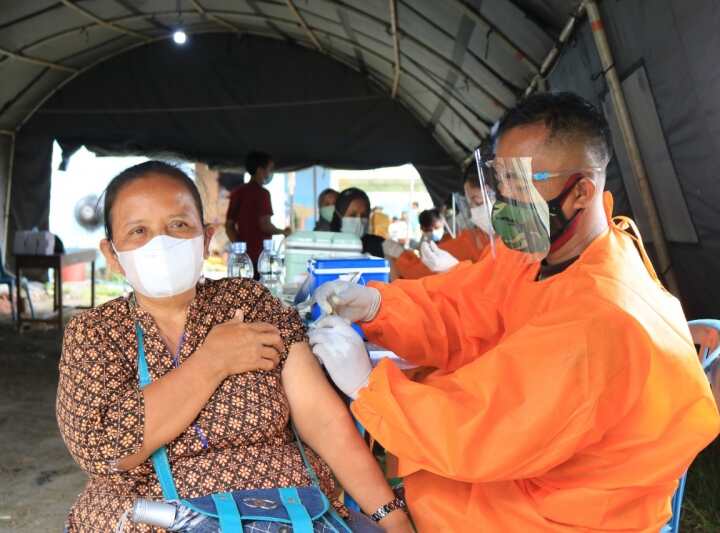
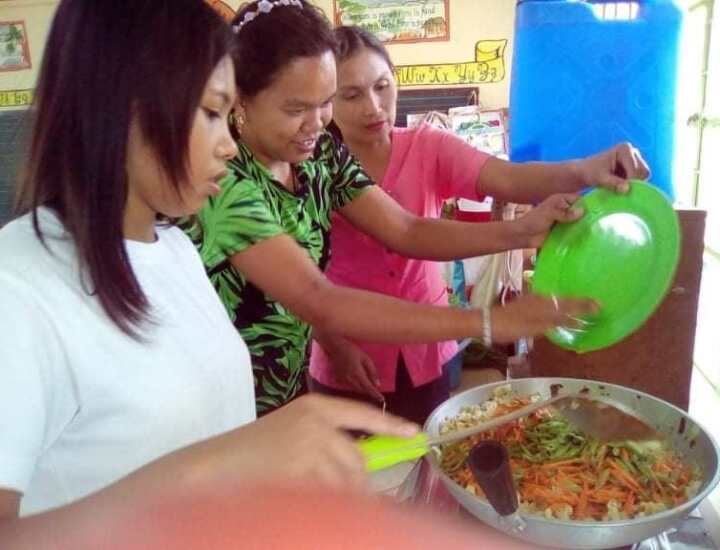
Supporting inclusive education and food security
Education and food security are closely linked, as proper nutrition is vital for learning and cognitive development. On World Teachers’ Day, CBM highlighted the role of educators in supporting students with disabilities, ensuring that they have access to not only inclusive education but also adequate food.
Malnutrition and food insecurity disproportionately affects children with disabilities, and CBM continues to advocate for school meal programs that cater to all students, helping to build a healthier and more inclusive future.
More work is needed
The number of people who are malnourished also includes people who are obese. Although in some of the more developed countries, access to food is a lot easier, there is also a growing proportion that is nutrient-poor.
Nutrient-poor foods such as processed snacks and ready meals are often consumed for convenience rather than nutrient density. They are also frequently produced at a great cost to the environment, created using large amounts of water compared to the growing of fresh vegetables, and packaged in plastic which does not biodegrade.
Fresh, nutrient-dense produce tends to cost more and expire faster. It can also be difficult to acquire due to geographical constraints and transport systems.
This year World Food Day “calls for action across sectors to make sustainable and healthy diets affordable and accessible to everyone. At the same time, it calls on everyone to start thinking about what we eat” (Food and Agriculture Organization of the United Nations (UNFAO)).
“Achieving Zero Hunger is not only about addressing hunger, but also nourishing people while nurturing the planet”.
This is why CBM and our partners are working to address food insecurity in developing countries, limit our greenhouse gas emissions and prepare communities for the impacts on climate change.
Get involved
You can give a gift of livestock via our Gift Shop. Or make your own donation.
No one should have to face food insecurity. Healthy diets are a human right.
